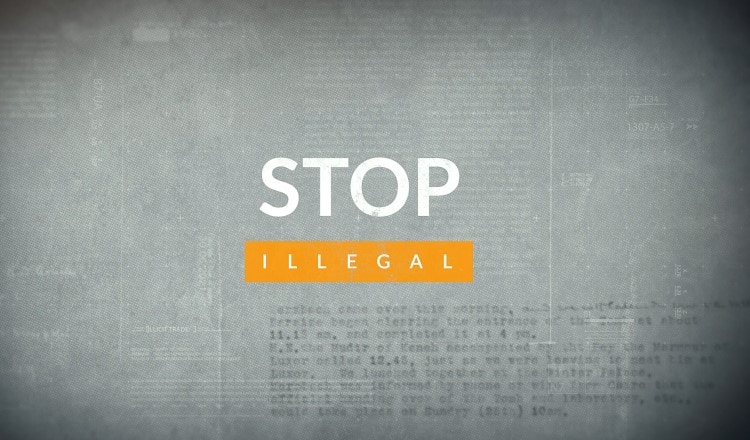
ALIBABA in Focus: “Effective Collaboration is the Best Weapon against Illicit Trade”
13 JUL 2018

Alibaba is the largest retail business in the world. With over half a billion active users every year, it has built its business by creating global partnerships with well-known brands. Combatting fakes and forgeries is a high priority.
STOP: ILLEGAL spoke to Alibaba’s Michael Yao to find out what they are doing to beat illicit trade.
How would you describe the Alibaba Group ecosystem and your marketplaces?
On our leading Taobao and Tmall retail marketplaces in China, we have over 552 million annual active consumers who generate a combined gross merchandise volume (“GMV”) of more than USD 768 billion. Around 75 percent of consumer brands ranked in the Forbes Top 100 World’s Most Valuable Brands have established digital operations on Tmall. Brands recognize our reach and consumer insights. They see us as the leading brand-building and retail distribution platform in China, allowing them to tap into the world’s largest consumer market. This also means the brands place their trust in us. They trust that our platform is secure, that we have industry-leading intellectual property rights protection, and that we will work with them to ensure that nobody or nothing sullies their brand.
How do you cooperate with brand owners to minimize the risk of IP infringement on your platforms?
The first thing to understand is that we’re all partners in the fight to protect intellectual property. Whether you’re the brand or rights holder, the platform, or law enforcement, we all have a role to play and must work closely together for a healthy business environment. We are stronger working together to protect IP.
We work with brands all the time. We cooperate with them to enforce their IP Rights through our notice and takedown programs that allow for the removal of listings that infringe on IP Rights. We’re proud of our record. During a seven-month period last year, we processed 95 percent of all takedown requests within 24 hours.
But we’re about way more than reactive takedowns. We dedicate manpower and leverage our technology to proactively monitor our marketplaces for potentially infringing listings. In the last year, we proactively removed 27 times more listings than were removed reactively. Of the listings we removed proactively, 97 percent were blocked, before even a single sale could take place.
We also want to attack the bad actors at the source, and that has to happen offline – largely manufacturing facilities that are creating these fakes. We work closely with law enforcement. Last year we provided them with thousands of leads that led to the closure of over 1,300 illicit manufacturing facilities.
What’s your stance on working with industry groups?
Proactive. We think we should take the lead in sharing our advanced cloud-computing technologies and data analysis expertise as weapons in the war to protect IP. We know these can be immensely useful. So, in January 2017, we established the Alibaba Anti-Counterfeiting Alliance (AACA) to encourage collaboration among industry participants, and to fully leverage and deploy the tools we developed. Global consumer brands, such as PMI, 3M, Amway, Ford, Johnson & Johnson, Mars, Procter & Gamble, and Spalding, in 12 industries participated. 105 brands in all, up from the original 30 when it was founded.
The AACA uses internet technology and data to combat IP infringement more effectively, efficiently, and transparently. The goal is to encourage rights holders, e-commerce platforms, and law enforcement agencies to work collaboratively to protect IPR through increased communication and exchange of information. The AACA also shares best practices among members and does joint media outreach to educate the public and consumers about the damage counterfeit products cause, including health, the environment, and safety.
In addition, Alibaba launched courses with law enforcement authorities from 31 provinces in China to share practices for combating counterfeiters. Furthermore, during 2017 Alibaba held 21 “Training & Sharing” sessions to exchange information with nearly 700 law enforcement officers across China.
There’s more. Nearly two years ago, Alibaba Group and the International Anti-Counterfeiting Coalition (IACC) created the IACC MarketSafe® Expansion Program. It enables participating rights holders—including businesses of all sizes, members, and non-members alike—to enjoy an expedited process for notice-and-takedown requests submitted to Alibaba. The goal of the program is to educate participating companies on Alibaba’s notice-takedown system and to make it easier for brands and rights holders to get speedy replies to their takedown requests.
How important is it for a brand owner like PMI to participate in the AACA?
Illicit trade is a big threat to the healthy development of markets and hurts innovation in our society. We share the same vision of protecting consumers and safeguarding our marketplaces. PMI is an industry leader in IPR protection, and the AACA offers a platform where we can combine our strength to fight crime and lead the way toward raising public awareness and protecting marketplace health. Though there are no tobacco products on the platform, we work with PMI closely in protecting their intellectual property on accessories and other merchandise.
How does Alibaba collaborate with government authorities and law enforcement in offline investigations?
Effective action against counterfeiting and piracy requires targeting the source. We aren’t aware of any other e-commerce company that actively assists law enforcement with a robust and sophisticated offline investigations program to the same extent that we do. We tap into our technology, complex algorithms, data, and advanced analytics. We provide law enforcement and other government authorities with critical information needed to identify and hold criminally liable those who make, supply, or distribute fake goods.
We strongly believe effective collaboration is our best weapon against counterfeiters. Alibaba works very closely with various law enforcement organizations in China. The numbers bear that out. We delivered over 1,900 tips to law enforcement last year, resulting in the arrest of 1,600 suspects and the closure of over 1,300 sites selling fake goods. In 2017, we have won big victories in the area of jewelry, pet food, and cosmetics.
What else can and should be done in the fight against fakes and the criminals who make and sell them?
Alibaba and our founder and Executive Chairman Jack Ma have publicly advocated for stronger IP laws and enforcement in China, including significant jail time for offenders. We also actively support real-world efforts to protect IP globally. Tougher laws and penalties need to fit the serious crimes of infringement and piracy to deter bad actors. Jack Ma said that if we tighten the laws, it will greatly impact the effectiveness of protecting intellectual property, heightening public awareness and consensus.
What is your vision for protecting IP rights? Why is it important for Alibaba to be seen as protecting IP?
IP is the lifeblood of businesses today, and protecting it is essential to safeguard the trust we’ve established with our merchants and consumers. We are fully aware of the damage to society and economic growth that IP rights-infringement can inflict. As such, we’ve dedicated significant time, people, and technology resources to vigorously defend the IP of brands and rights holders. We also demand every vendor on our platforms to defend those IP rights just as vigorously.
But the war to protect intellectual property can’t be won by one company. We also work with numerous partners, including rights holders, government agencies, and industry associations on a wide range of efforts to protect IPR and crack down on various forms of infringement.
And we need support from broader society. An improved legal framework is also desperately needed. Alibaba Group is committed to the fight against this social cancer of IPR infringement and calls for collaboration among the legislature, administrative authorities, platforms, and consumers.
Overall, our results speak for themselves, with over 150,000 brands operating on Alibaba’s Tmall platform. The trust in our IP protection efforts is clearly there.


